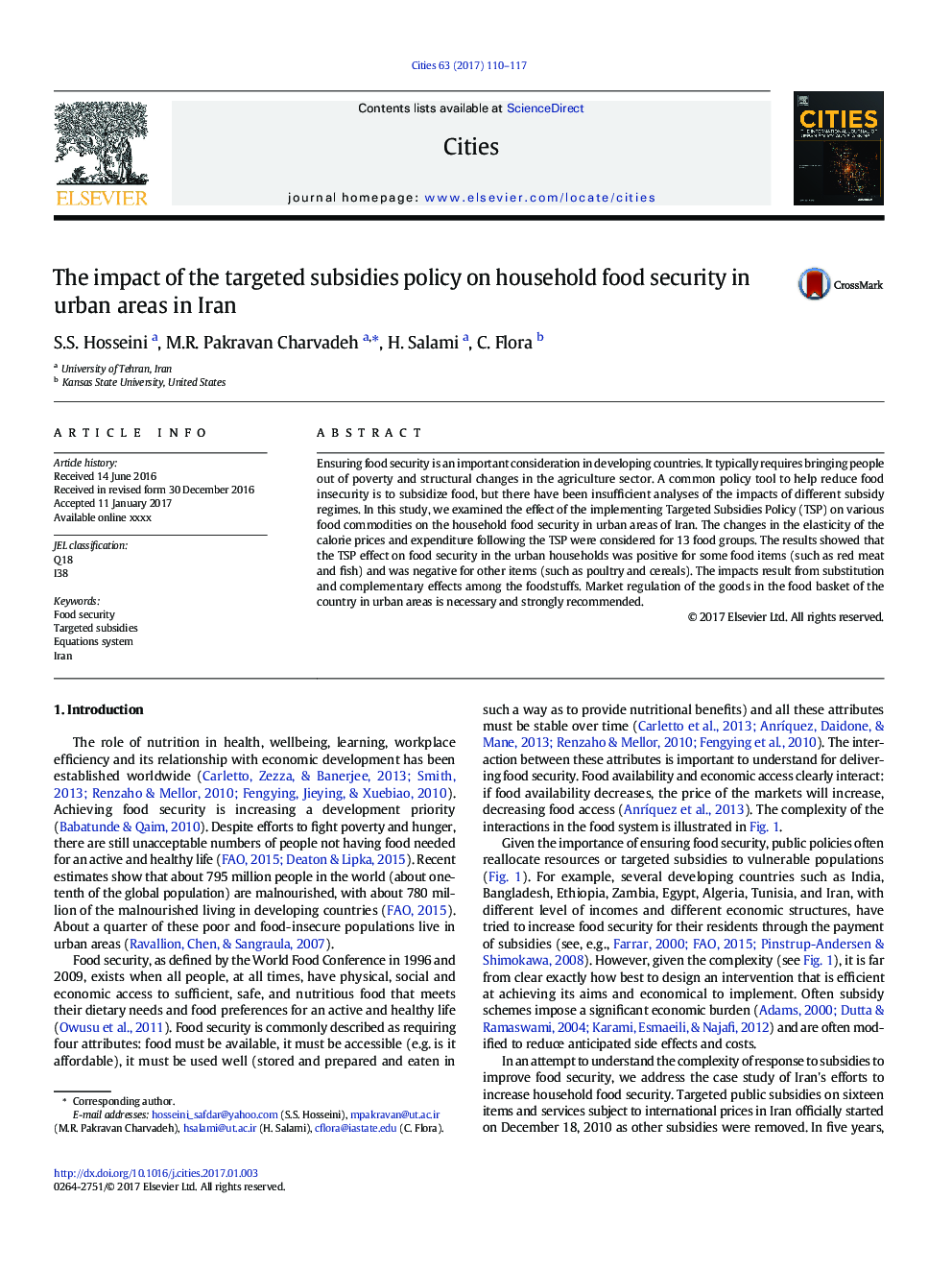| Article ID | Journal | Published Year | Pages | File Type |
|---|---|---|---|---|
| 5108125 | Cities | 2017 | 8 Pages |
Abstract
Ensuring food security is an important consideration in developing countries. It typically requires bringing people out of poverty and structural changes in the agriculture sector. A common policy tool to help reduce food insecurity is to subsidize food, but there have been insufficient analyses of the impacts of different subsidy regimes. In this study, we examined the effect of the implementing Targeted Subsidies Policy (TSP) on various food commodities on the household food security in urban areas of Iran. The changes in the elasticity of the calorie prices and expenditure following the TSP were considered for 13 food groups. The results showed that the TSP effect on food security in the urban households was positive for some food items (such as red meat and fish) and was negative for other items (such as poultry and cereals). The impacts result from substitution and complementary effects among the foodstuffs. Market regulation of the goods in the food basket of the country in urban areas is necessary and strongly recommended.
Keywords
Related Topics
Social Sciences and Humanities
Business, Management and Accounting
Tourism, Leisure and Hospitality Management
Authors
S.S. Hosseini, M.R. Pakravan Charvadeh, H. Salami, C. Flora,
